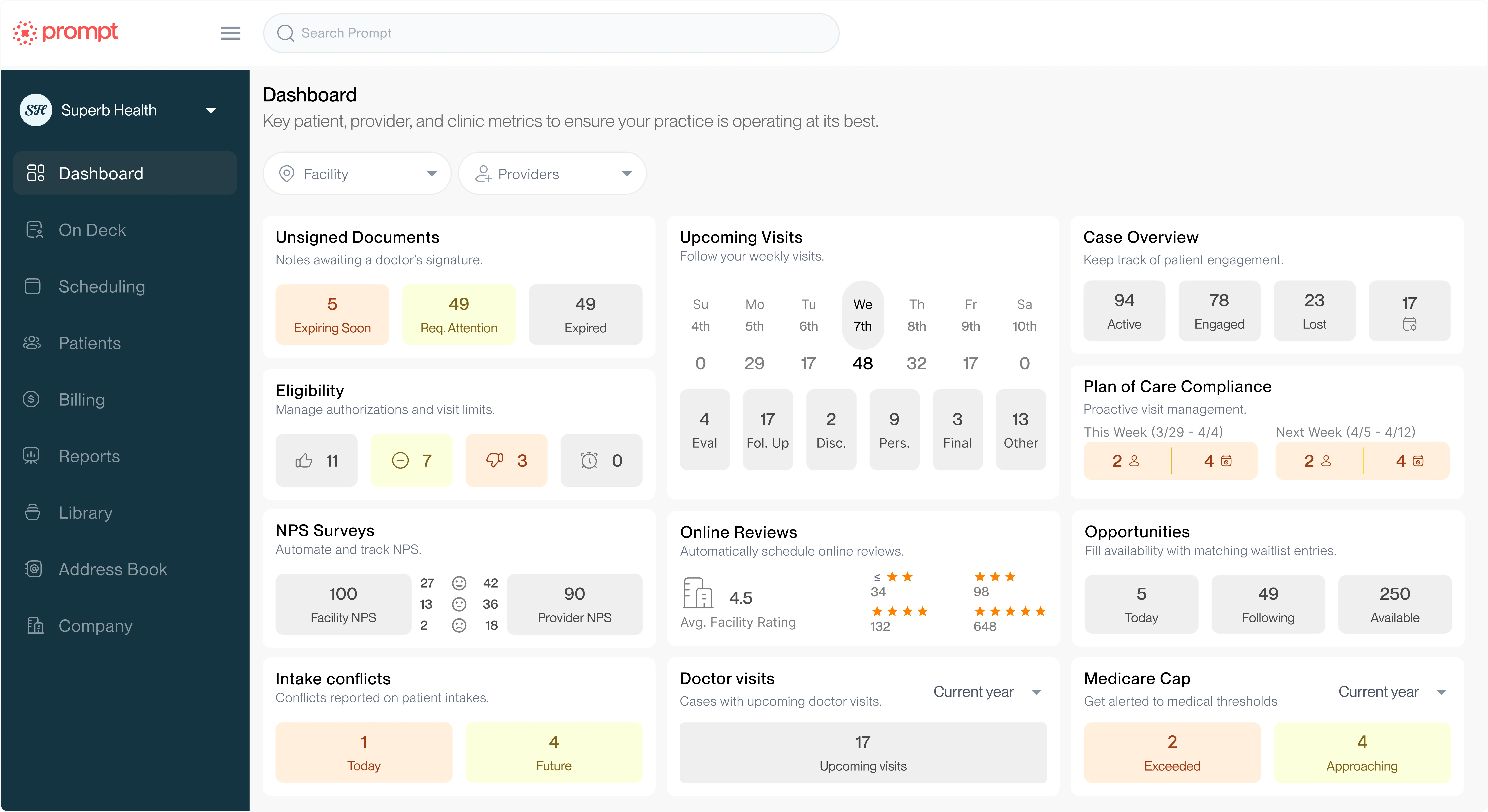See Prompt in action!


Every clinician knows the balance between doing meaningful work and meeting financial expectations can be tough. Traditional salary models often limit growth and flexibility, leaving many professionals feeling overworked and underrecognized.
Variable compensation offers a different path that rewards skill, effort, and impact in real time. For employees, it can be a game-changer for both professional fulfillment and financial freedom. 73% of clinicians surveyed in The Clinician Transition cited insufficient salary as a reason they were transitioning out of traditional care.
But, switching to a payment model other than a traditional salary can be overwhelming, especially if your staff has never done it before. Here are 5 real benefits your employees can expect to see from adopting a variable compensation model:
A variable model gives clinicians great control over their schedules. Because pay is linked to the patients treated and the revenue generated, there’s room to structure the workday around what makes sense for both patients and providers.
Some clinicians prefer a traditional 8-hour work day, while others may want to condense their hours or shift their schedules to balance other personal needs. This flexibility empowers employees to manage their time intentionally in the way that works best for them, without sacrificing patient care.
Variable compensation models directly connect efforts with rewards. Instead of waiting for incremental raises or bonuses, employees can increase their income at any time through consistent quality care and productivity.
This model eliminates the frustration of one-size-fits-all salaries, where high performers are paid the same as average ones. When earnings reflect actual contributions, motivation naturally follows. It’s a fair, transparent way to recognize and reward excellence.
"The amount you make is up to you," Compensation founder Jason Wambold says. "Rather than having a one size fits potentially none approach, having options and choices is a really powerful tool."
When success is tied to individual performance, employees often develop a strong sense of ownership over their work. Patient outcomes, reputation, and daily habits all contribute to personal and professional growth.
This structure encourages employees to take pride in their results, build lasting relationships with their patients, and see a direct connection between their effort and reward. It also helps foster a culture of accountability and mutual respect among peers.
Variable compensation models don’t have to be the same for everyone, but they also don’t have to be the same for any one person all the time. Most systems allow for flexibility based on individual priorities, which can mean maximizing earnings through more work, or scaling back the schedule to make time for other things.
In other words, employees can choose plans that align with their personal goals and adjust them as those goals evolve. If someone wants to work really hard for a few months to save up for a house, for example, and then scale back once they achieve that goal, they can do so.
A flexible, variable compensation model allows employees to achieve their personal and professional goals without having to choose between growth and balance.
Throughout the course of someone’s career, their energy, outside priorities, and goals will change. A variable compensation model can help fit work into those changing seasons of life, rather than making employees miss out on things outside the clinic.
For example, a single, new graduate may want to focus on maximizing their income and gaining more experience, while a clinician with a young family may want to focus on a more flexible schedule that allows them to be at school or sporting events in the afternoons.
LaRissa Shaps, VP of Company Operations at Spooner, says "We have visit expectations that we expect our therapists to achieve each week, but how they go about it is really up to them. If they need to leave early on a Friday because they're taking a weekend trip and they want to flex their schedule, they can do that."
Any person may need both of these options at different times in their careers, and a variable compensation plan allows them to balance their work and personal lives.
Variable compensation plans give employees control, choice, and a clear path toward growth. It allows them to earn more, but it also allows them to create a career model for themselves that rewards efforts, values autonomy, and adapts to their life as it changes.
When employees feel empowered to manage their schedules, influence their income, and see the results of their work in real time, the result is stronger motivation, better patient outcomes, and a more engaged team.
To see how Compensation can help implement this ethos in your clinic, schedule time with one of our experts today.
{{demo-cta-banner}}
Help your practice grow
From intake to insights, Prompt is the all-in-one platform you need